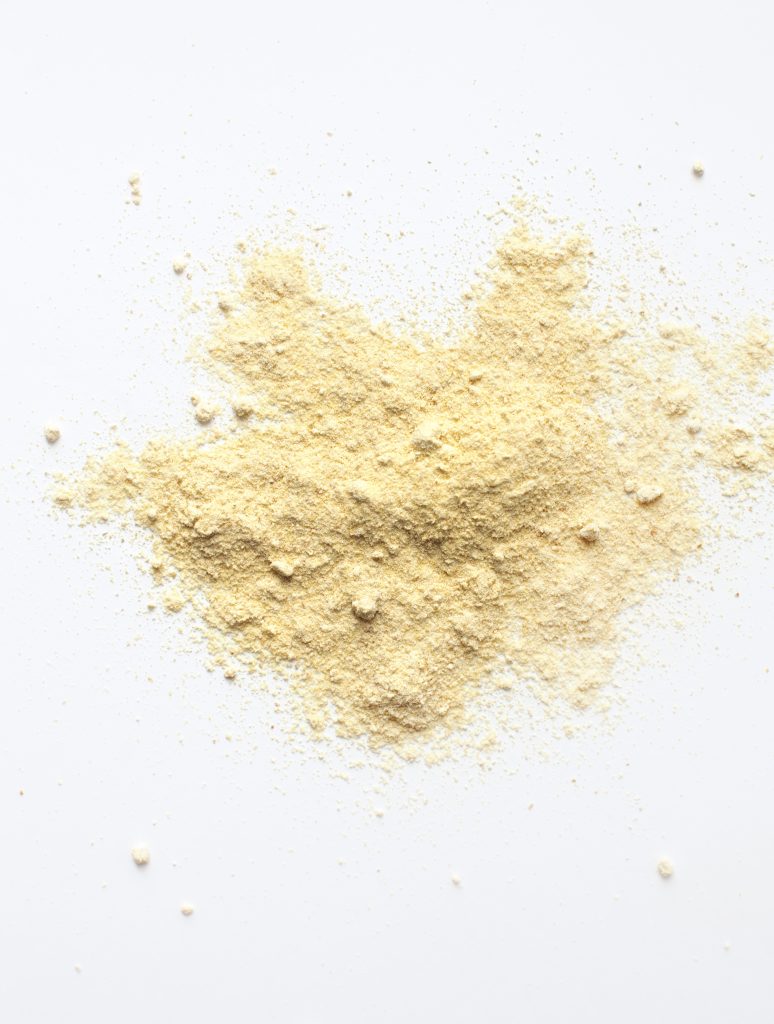Often referred to, and sold as “gram” flour (not to be confused with graham flour), or besan, chickpea flour is made from the dried legumes. You can find chickpea flour at specialty food stores and online. It is great in falafels and socca.
- Gluten free.

About Flours
Typically flours are milled from grains, but they can also be made from seeds, nuts and legumes. Due to consumer demand, flours of all kinds are entering the mainstream market, which is good news for anyone who is looking for tastier and healthier alternatives to the ubiquitous white stuff.
All-purpose flour has been refined, giving us only the powdered endosperm of the grain. The endosperm makes up the main part of the grain itself and contains mostly carbohydrates, very little fiber, little to no essential fat, and very little in the way of vitamins and minerals. All-purpose white flour quite literally has nothing left in it to go bad, which explains why you can store it for years on end without it spoiling.
Although you cannot simply replace all-purpose white flour with an alternative without at least knowing a little about its properties, in general, you can get away with using the same amount of gluten-containing flour in place of all-purpose. When using gluten-free flours however, using a combination of different flours is necessary to mimic the elastic, binding qualities that gluten lends to baked goods. As it takes some guesswork, start by using recipes that call for specific amounts of gluten-free flours, or make your own by grinding certified gluten-free oats in a food processor.
Buying
Look for whole grain flours at your health food store or local specialty shop. Purchase stone-milled flour if you can. Stone-grinding grains to make flour is done quite slowly, generating very little heat compared to commercial methods. Many of the delicate nutrients in the grain can be lost in this process. Make sure your flour has an expiry date to ensure freshness and quality. (All-purpose white flour quite literally has nothing left in it to go bad, which is why you can store it for years on end without spoiling.) If you are purchasing stone-milled flour, buy it from a shop that keeps it in the fridge. Do not buy large amounts that you will not be able to use up before its expiry date.
Storing
It may surprise to discover that flour actually expires. Like the whole grains that flour is milled from, it too contains all the parts of the grain including the delicate fats that can become rancid. For this reason, it is extremely important to store whole grain flour in tightly sealed canisters in a cool, dry place. Store in the fridge or freezer if you only use it occasionally.
How to tell if your flour is rancid:
- Smells ‘off’ or sour
- Tastes bitter
- Contains little bugs that can look like little pepper flakes
Now that you are making the switch to whole-grain flours, you’ll need to be aware that purchasing smaller amounts and storing it properly is important for saving money and your health!



